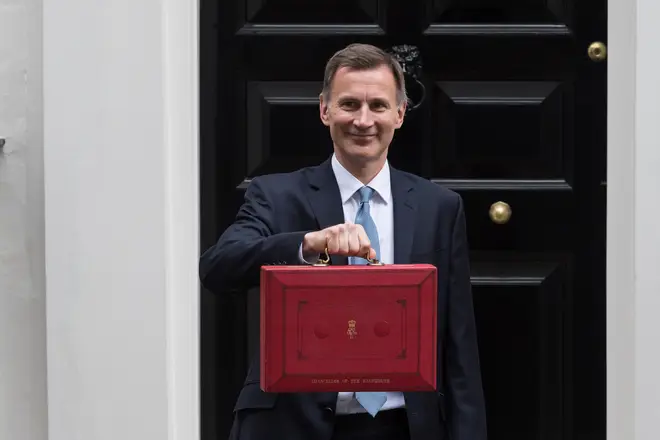Spring Budget 2023: What are the new childcare rules?
15 March 2023, 14:31 | Updated: 15 March 2023, 14:48

The government is set to offer 30 free hours childcare a week to toddlers aged one and two, plus more financial help for families on Universal Credit.
Jeremy Hunt today confirmed a huge childcare reform in the UK which will see parents of one and two-year-olds be entitled to 30 free childcare hours.
The updated scheme will offer huge financial relief to families struggling to cover the soaring price of nursery and childminding bills as well as increase many parents' chances of returning to work.
The Budget also went one step further in their childcare shake-up and confirmed extra help for families who claim Universal Credit.
So what exactly did the Spring Budget 2023 say about the new 30 free hours scheme? And what extra help is being given to families on Universal Credit? Here are the latest announcements explained.

What did the Spring Budget say about 30 free hours childcare?
Jeremy Hunt announced in the Spring 2023 Budget that children as young as nine months will be offered 30 hours free childcare a week as part of a new expansion.
The Chancellor said it will reduce childcare costs by around 60 per cent.
During the much-anticipated announcement, he stated: "We have one of the most expensive systems in the world. Almost half of non-working mothers said they would prefer to work if they could arrange suitable childcare.
"For many women, a career break becomes a career end. Our female participation rate is higher than average for OECD economies, but we trail top performers like Denmark and the Netherlands. If we matched Dutch levels of participation, there would be more than one million more women who want to work, in the labour force. And we can."
When addressing childminders, Jeremy Hunt added: "I have decided to address this by piloting incentive payments of £600 for childminders who sign up to the profession, rising to £1,200 for those who join through an agency."
Currently most families with kids under two cannot access any financial support for nursery or childminders fees after parental leave ends and free childcare begins.

How are Universal Credit childcare rules changing?
The government has announced more financial aid to parents on Universal Credit who have young children.
Currently, people on this specific benefit have a £646-a-month per child cap to use on childcare but under new rules the amount will increase.
The shake-up also means families will now be able to receive their childcare support upfront, instead of having to claim it back at a later date.

What are the current free childcare rules?
At the moment, all families in England with three and four-year-olds qualify for 15 free childcare hours a week, spread across 38 weeks (school term time), from officially-registered providers.
Households can apply to bump this up to 30 hours a week if parents earn the equivalent of 16 hours a week (£152) at the national minimum or living wage.
The government website also states that: "You can get 30 hours free childcare at the same time as claiming Universal Credit, tax credits, childcare vouchers or Tax-Free Childcare."
The Scottish government offers 30 hours a week during term time to all three and four-year-olds, while in Wales it's just ten hours a week if you don't work, 30 hours a week (for 48 weeks a year) if you do.
If you live in England, two-year-olds also quality for 15 hours free childcare a week (for 38 weeks) the term after their 2nd birthday.
However parents are only eligible if they claim certain benefits such as Universal Credit, if their child is disabled or looked after.
In Scotland, children under two are entitled to up to 1,140 hours per year if parents are receiving certain benefits.
In Wales, two and three-year-olds receive 12.5 hours a week for 39 weeks in Flying Start areas – places which are disadvantaged.
Read more:
- ‘My toddler doesn't have a bedtime and stays up until 3am’
- Teacher explains why she refuses to read Paddington Bear and Goldilocks in class
- Primary school forces kids to stand in cold without coats 'as punishment for chatting'






















